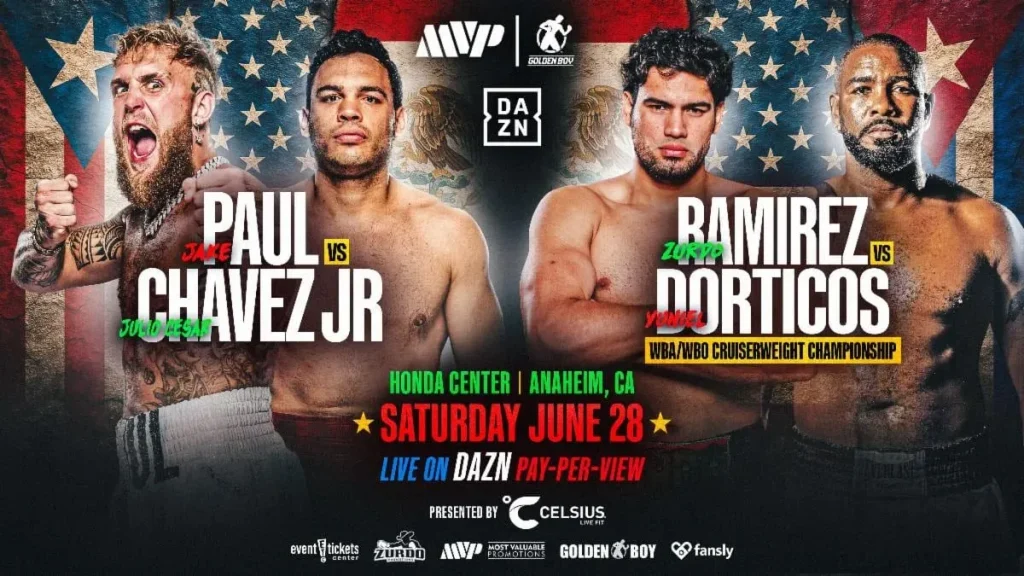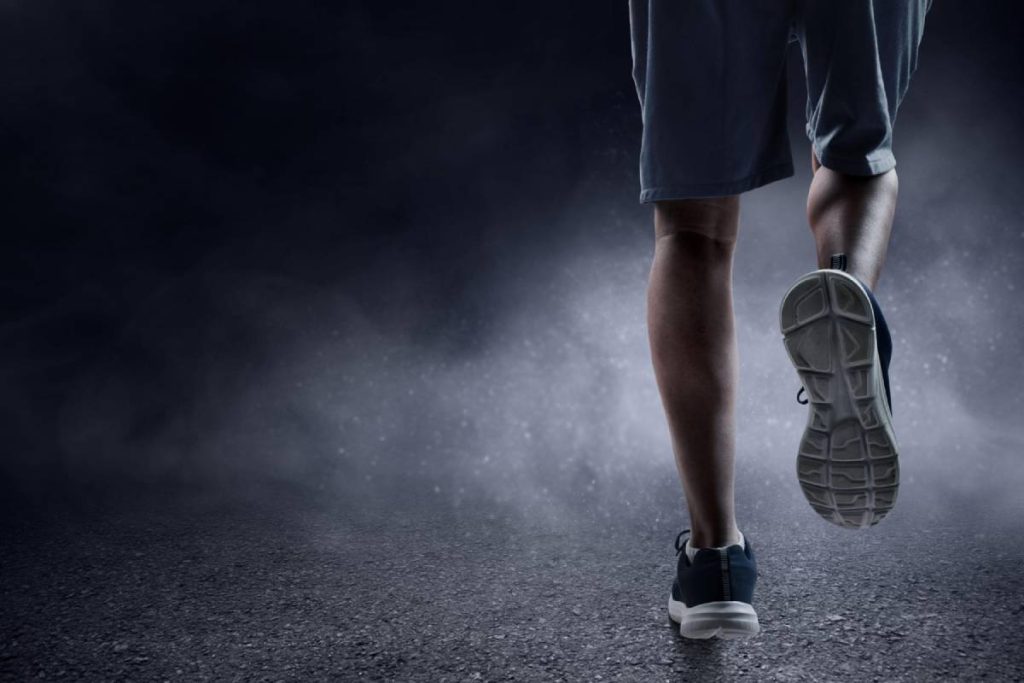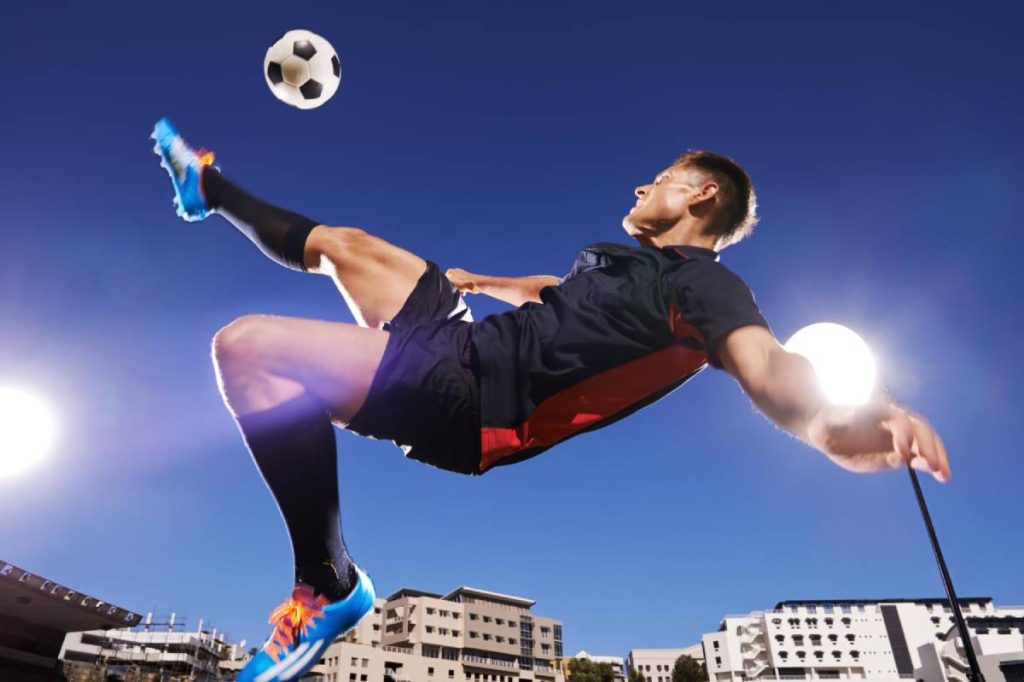Julio César Chávez Jr. deportation has become a hot topic in the boxing community following his recent arrest by ICE for overstaying his visa and misinformation on his green card application. Just days after his controversial loss to YouTube sensation Jake Paul in Anaheim, this incident highlights the growing concerns surrounding deportation issues in the U.S. Chávez Jr. has a troubled past, with multiple run-ins with the law, including ties to organized crime that have raised eyebrows, especially with hints of Sinaloa Cartel connections. Fans and analysts alike are speculating on how his arrest will impact his future in boxing and the broader fight scene. As the legal proceedings unfold, the fallout from Chávez Jr.’s deportation could mark a significant turning point in navigating the complicated intersection of sports and immigration enforcement.
In recent days, discussions around the deportation of Chávez Jr. have gained traction, especially as the boxing world reacts to his ongoing legal challenges. Known for his tumultuous career characterized by both triumph and turbulence, his recent ICE arrest has sparked debates about the implications of his previous legal issues and possible affiliations with organized crime networks. Aspects of his life, including the connections to the Sinaloa Cartel and his recent match against Jake Paul, weave a complex narrative that juxtaposes his athletic achievements with profound legal ramifications. The situation raises essential questions about the ethics and responsibilities of athletes in the public eye, making it a significant moment in the unfolding boxing saga. As his fate hangs in the balance, the implications of Chávez Jr.’s case resonate far beyond the boxing ring.
Julio César Chávez Jr. Deportation: Legal Issues and Implications
Julio César Chávez Jr.’s recent ICE deportation has stirred significant conversation regarding the implications of illegal immigration and criminality in sports. After overstaying his visa and allegedly falsifying information on his green card application, Chávez’s plight serves as a stark reminder of the challenges athletes can face under immigration laws. His deportation raises questions about how the U.S. manages cases involving those with criminal histories, which in typical scenarios might include considerations for their social contributions and public personas.
Moreover, Chávez Jr.’s case is particularly noteworthy given his family history and the legacy of his father, boxing legend Julio César Chávez Sr. This connection amplifies public interest and complicates the deportation narrative, as it intertwines personal struggles with broader socio-political issues. With public sentiment often divided on immigration topics, the boxing community reflects varying opinions on whether Chávez Jr.’s deportation is justified.
The Complex Legal Battles of Chávez Jr.: From Arrest to Deportation
The legal troubles surrounding Julio César Chávez Jr. extend beyond his recent arrest; they form a complex web of past offenses that now contribute to his expedited deportation process. His previous encounters with the law, including multiple DUI charges and organized crime allegations, have painted him as a controversial figure within the boxing industry. The scrutiny over his criminal history raises critical discussions about the accountability of professional athletes and their behavior.
Chávez’s situation illustrates how legal issues can negatively affect an athlete’s career. With his ties to the Sinaloa Cartel and ongoing investigations into organized crime, Chávez Jr. exemplifies the darker side of celebrity through a lens of legal controversy. As authorities expedite his deportation, it is worth considering the long-term consequences not only for him but also for the sport of boxing as it grapples with the implications of crime and the need for stricter regulations surrounding athletes.
Boxing Controversies: Chávez Jr.’s Career and His Fight with Jake Paul
Julio César Chávez Jr.’s fight with YouTuber Jake Paul marked a crucial moment in both his fighting career and the larger boxing landscape. The match, ending in a unanimous decision victory for Paul, sparked debates over the legitimacy of such crossover fights in professional boxing. Many argue that these bouts, while entertaining, undermine the sport’s integrity and distract from traditional bouts among seasoned fighters. Chávez Jr.’s involvement in this controversial fight has only amplified discussions around his career trajectory and public image.
Critics have pointed to Chávez Jr.’s visible struggles with both in-ring performance and personal issues, suggesting that his fight with Paul may have been less about sporting excellence and more about regaining relevance. Following the fight, which came on the heels of his troubling legal issues, questions surrounding his capacity to return to elite boxing arise. The ongoing struggles he faces, paired with a loss to a social media influencer, have left many wondering if this was a last chance effort for Chávez Jr. within the sport.
Impact of Immigration Policies on Sports Figures like Chávez Jr.
Julio César Chávez Jr.’s deportation brings attention to how immigration policies impact athletes and public figures. His experience is a case study of the complexities facing immigrants who achieve fame in the U.S. but struggle with legal battles. The juxtaposition between sport and immigration law raises questions of fairness and due process for those with legal infractions versus those without.
As the Biden administration assesses its approach to immigration, Chávez Jr.’s case could serve as a reference for future policies affecting high-profile athletes with criminal backgrounds. It reflects a growing concern over public safety versus the rights of individuals. This trend can impact potential deportees’ ability to continue their careers, highlighting the fragile balance between professional aspiration and personal accountability.
Chávez Jr. and His Connection to the Sinaloa Cartel
The speculation about Julio César Chávez Jr.’s ties to the Sinaloa Cartel adds another layer to his narrative. Law enforcement agencies have indicated potential connections, raising serious implications for his legality and reputation in the boxing realm. As authorities scrutinize his affiliations, fans and critics alike question whether these potential ties are mere rumors or whether they substantially constitute a threat to public safety.
Chávez Jr.’s legal troubles and potential cartel connections have undoubtedly shrouded his boxing legacy in controversy. The findings by the Department of Homeland Security signal a peak concern, as connections could tarnish not just his achievements but the sport itself. The intersection of boxing and organized crime, while not new, takes on serious dimensions with figures like Chávez Jr. at its center, compelling everyone in the sport to reassess their environment in light of ongoing issues.
Drugs and Boxing: A Troubling Pattern for Chávez Jr.
Julio César Chávez Jr. has had a tumultuous relationship with substance abuse, a struggle that raises alarm in both his personal and professional life. With several failed drug tests tying him to various banned substances, the boxer’s challenges extend beyond the ring. These failures not only impact his performance but also raise ethical concerns about athletes’ responsibility in maintaining integrity throughout their careers.
His repeated encounters with drugs reinforce a troubling pattern that echoes throughout the sport of boxing, often revealing the personal demons athletes face behind their public personas. As boxing grapples with issues of substance abuse, Chávez Jr.’s plight serves as a cautionary tale about the importance of rehabilitation and accountability, highlighting a pressing need for support systems within the sport.
Public Reception and Media Coverage of Chávez Jr.’s Arrest
The public reception to Julio César Chávez Jr.’s arrest and impending deportation has been mixed, revealing the polarized opinions about public figures with criminal records. Media coverage often sensationalizes stories involving celebrities, which can further complicate the narrative surrounding individuals like Chávez Jr. While some view him through a lens of sympathy given his legendary family legacy, others criticize his actions and lack of accountability.
Chávez’s case has prompted discussions about immigration enforcement and the role of law enforcement in managing public figures. Outlets covering his story have zeroed in on the mix of personal struggle and legal trouble, demonstrating how media framing can influence public perception. As he faces potential deportation, the narrative surrounding him underscores the precarious nature of fame and its repercussions in the eyes of the law.
Comparing Chávez Jr.’s Career to Other Fighters with Legal Issues
When examining the careers of athletes with similar legal troubles, Julio César Chávez Jr. holds a unique position. Other fighters, like Mike Tyson and Floyd Mayweather, have also faced significant challenges outside the ring, but their ability to rebound from controversy offers a contrasting perspective on Chávez’s journey. While Tyson and Mayweather leveraged their personal challenges into opportunities for growth, Chávez Jr.’s trajectory appears to be significantly burdened by his ongoing legal issues.
This comparison invites deeper discussion on how legal battles can impact a fighter’s brand and marketability. As fans look to support athletes who demonstrate resilience, Chávez Jr.’s current challenges may overshadow his accomplishments in the ring. In an era where social media influences public persona, how he chooses to navigate these legal hurdles could define his legacy, much like his fight against Paul did.
Future of Boxing in Light of Chávez Jr.’s Controversies
The ongoing controversies surrounding Julio César Chávez Jr. prompt a larger reflection on the future of boxing as a sport grappling with issues of legality and morality. With his deportation case highlighting the potential consequences of unchecked criminal behavior among athletes, the boxing community faces scrutiny regarding how it mitigates risks associated with high-profile figures. This situation calls for a reevaluation of policies that govern athlete conduct both inside and outside the ring.
As boxing navigates the complexities of fame intertwined with legal violations, the Chávez Jr. saga presents an opportunity for reform. Implementing stricter oversight on fighter conduct, especially those whose lives straddle the line between celebrity and infamy, could ultimately protect the integrity of the sport. Moving forward, ensuring accountability will be key in preserving boxing’s reputation amidst these challenging narratives.
Frequently Asked Questions
What are the reasons behind Julio César Chávez Jr. deportation?
Julio César Chávez Jr. is facing deportation primarily due to overstaying his visa and providing false information on his green card application. His arrest by ICE has escalated amid his ongoing legal troubles, including ties to organized crime and past convictions.
How does Julio César Chávez Jr. arrest relate to the Sinaloa Cartel?
Julio César Chávez Jr. is under scrutiny for potential ties to the Sinaloa Cartel, as indicated by the Department of Homeland Security. These suspected connections to organized crime have contributed to his deportation case and the public interest surrounding his arrest.
What impact did Julio César Chávez Jr.’s boxing controversies have on his deportation?
Chávez Jr.’s boxing controversies, including multiple failed drug tests and legal issues, have fueled concerns regarding his conduct as a public safety threat. These factors, combined with his extensive criminal history, have played a significant role in the decision for his deportation.
Did Julio César Chávez Jr.’s fight against Jake Paul influence his arrest?
While the fight against Jake Paul was a high-profile event, it directly precedes his arrest and deportation. His loss in that match has been overshadowed by the legal troubles he faces, suggesting that his boxing career is now secondary to his immigration status.
What are the implications of Julio César Chávez Jr.’s deportation for his boxing career?
Julio César Chávez Jr.’s deportation will likely have severe implications for his boxing career, potentially barring him from competing in the U.S. His arrest and the subsequent legal complexities may mark the end of his professional endeavors in boxing.
How does ICE handle deportation cases like that of Julio César Chávez Jr.?
ICE processes deportation cases like that of Julio César Chávez Jr. through expedited removal when there are significant legal violations, such as overstaying a visa or engaging in criminal activity. Chávez’s extensive criminal history further complicates his case.
What is Julio César Chávez Jr.’s history with law enforcement?
Chávez Jr. has a troubled history with law enforcement, including a DUI arrest in 2012, and recent charges related to organized crime and weapons trafficking. This history has led to increased scrutiny and ultimately, his deportation arrest.
What is the response of Mexican authorities regarding Julio César Chávez Jr. deportation?
Mexican authorities, including President Claudia Sheinbaum, acknowledged that Chávez Jr.’s arrest provides an opportunity for his deportation. They aim for him to serve any potential sentencing in Mexico following his removal from the U.S.
| Key Point | Details |
|---|---|
| Arrest Details | Julio César Chávez Jr. was arrested by ICE for deportation due to overstaying his visa and lying on a green card application. |
| Background of Arrest | His arrest follows his recent loss to Jake Paul and comes as U.S. authorities process him for expedited removal. |
| Criminal History | Chávez Jr. has an extensive criminal history, including DUI charges and ties to organized crime. |
| Speculation on Cartel Ties | He is suspected of having connections with the Sinaloa Cartel and his marriage to a U.S. citizen may be linked to cartels. |
| Government Response | Mexico’s President Claudia Sheinbaum commented on his deportation and intention for him to serve his sentence in Mexico. |
| Personal Challenges | Chávez Jr. has faced substance abuse struggles similar to his father’s and has a history of failed drug tests. |
Summary
Julio César Chávez Jr. deportation has sparked significant discussion in the sports and legal communities. His arrest for overstaying a visa and connection to organized crime raises questions about public safety and immigration enforcement. As a high-profile figure linked to the sport of boxing, his case reflects the complexities of immigration policy and its implications for individuals with criminal histories. This incident not only impacts Chávez Jr. personally but also contributes to the ongoing discourse regarding deportation practices and their enforcement in the United States.



